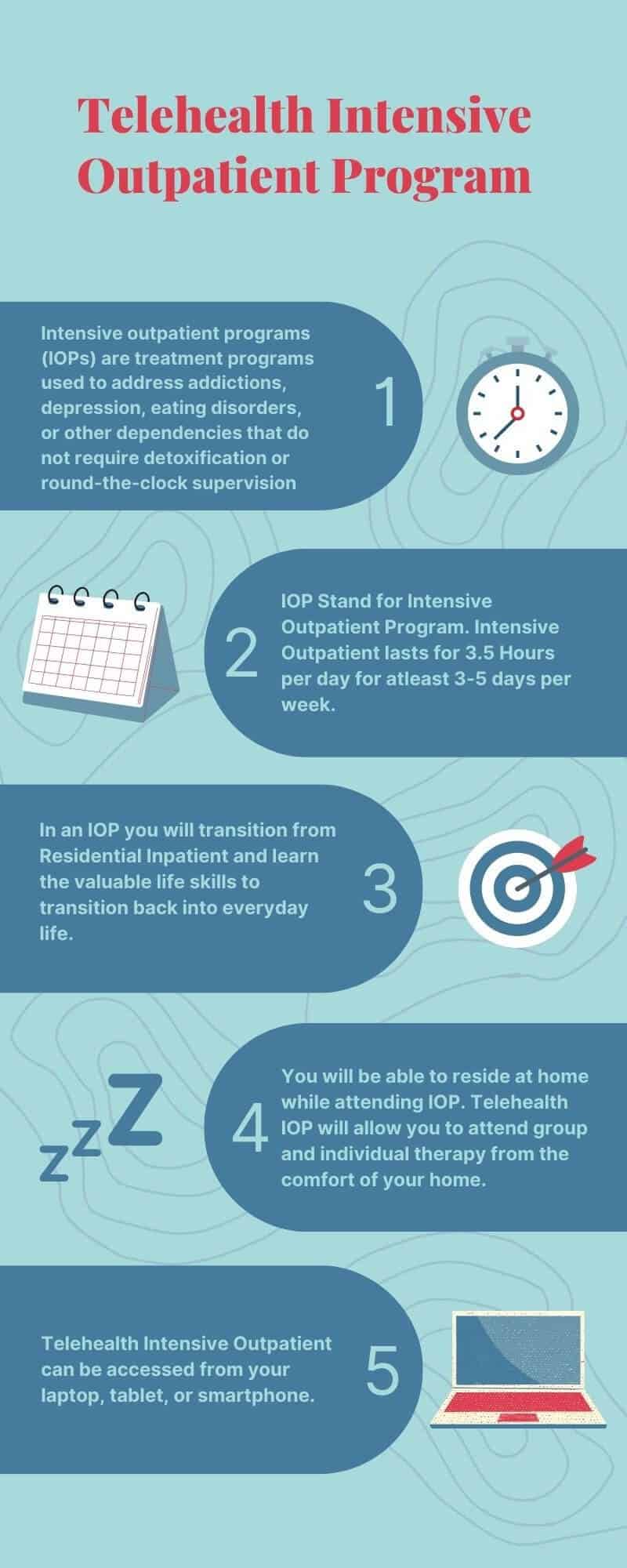Why an Intensive Outpatient Program (IOP) is Vital for Enduring Healing.
Why an Intensive Outpatient Program (IOP) is Vital for Enduring Healing.
Blog Article
The Impact of Holistic Therapies on Mind-Body Recovery in an Extensive Outpatient Program
In the realm of extensive outpatient programs, the consolidation of holistic therapies has actually sparked substantial interest and dispute among specialists in the field of psychological health and wellness. The expedition of alternative techniques, such as yoga, reflection, acupuncture, and mindfulness strategies, raises inquiries regarding their effectiveness in advertising mind-body healing for individuals undertaking treatment. As the need for comprehensive and integrative care expands, recognizing the effect of these holistic interventions within the structured structure of an extensive outpatient program ends up being progressively important. The possible harmony in between traditional healing techniques and holistic methods in cultivating alternative health remains a subject ripe for expedition and analysis.
Integrating Holistic Therapies in IOP
Including alternative treatments right into Intensive Outpatient Programs (IOP) can improve the overall wellness and treatment end results of individuals looking for mental health and wellness support. All natural therapies concentrate on treating the entire person, resolving not only the symptoms yet likewise the underlying root causes of psychological health and wellness issues. By incorporating practices such as yoga, meditation, art therapy, and acupuncture into IOP settings, patients can experience a more extensive method to their therapy.

Benefits of Yoga and Meditation
By infusing IOP settings with holistic therapies like yoga exercise and reflection, people can access a variety of advantages that add to their mental and emotional well-being. Yoga, with its focus on physical postures, breathing techniques, and mindfulness, can help people minimize stress and anxiety, anxiousness, and anxiety. The method of yoga exercise advertises leisure and enhances overall mood by launching endorphins, the body's all-natural feel-good chemicals. Furthermore, yoga boosts self-awareness and cultivates a feeling of inner peace, which can be particularly advantageous for individuals undertaking extensive outpatient therapy.
Reflection, on the various other hand, concentrates on training the mind to achieve a state of clarity and emotional calmness. By incorporating reflection right into their regular, people in an IOP can learn to take care of racing thoughts, boost concentration, and grow a much more positive expectation on life. Reflection methods have actually been shown to decrease signs and symptoms of PTSD, boost emotional resilience, and advertise better rest patterns, every one of which are crucial parts of the healing procedure in intensive outpatient programs. As a result, incorporating yoga and reflection into IOP setups can dramatically improve the mental and psychological well-being of people looking for holistic recovery.
Acupuncture for Mind-Body Recovery
Acupuncture, a traditional Chinese medicine technique involving the insertion of thin needles into certain factors on the body, offers a distinct strategy to mind-body healing by targeting power circulation and advertising all natural health. This ancient method is based upon the concept of Qi, the body's essential power, flowing along meridians or paths. By stimulating certain acupoints, acupuncturists aim to bring back the equilibrium of Qi, which is believed to be crucial for general wellness and wellness.

In addition, acupuncture is increasingly being integrated right into Western medicine techniques to complement traditional treatments for various psychological health and wellness problems, offering an alternative strategy that considers the interconnectedness of the body check that and mind in promoting healing and wellness.
Mindfulness Techniques in Treatment
Increasing on the world of all natural therapies, mindfulness techniques play an essential duty in therapy by promoting a much deeper link between the mind and body for overall well-being. Mindfulness, rooted in old reflective practices, involves paying attention to the here and now moment non-judgmentally - Intensive Outpatient Program (IOP). In the context of an intensive outpatient program, including mindfulness methods can help individuals create self-awareness, regulate emotions, and reduce anxiety levels. With mindfulness reflection, people can cultivate an increased feeling of recognition of their ideas, sensations, and physical feelings, advertising a higher understanding of the interconnectedness between physical and mental well-being.

Mindfulness strategies can additionally assist in damaging the cycle of negative idea patterns and habits that might add to mental health obstacles. By encouraging people to observe their ideas without attachment or judgment, mindfulness promotes a feeling of acceptance and concern in the direction of oneself. This technique can lead to enhanced psychological strength, improved coping systems, and a better feeling of internal tranquility. Eventually, integrating mindfulness techniques into treatment strategies can empower people to proactively participate in their recovery journey and promote alternative health.
Reviewing All Natural Treatments' Efficacy

By integrating measurable data with qualitative responses, researchers can gain a more all natural understanding of the effectiveness of these interventions in promoting mind-body recovery within an intensive outpatient program. Such evaluations are vital for notifying evidence-based techniques and optimizing holistic treatment strategies for individuals looking for comprehensive health.
Conclusion
Finally, the combination of all natural treatments such as yoga exercise, meditation, acupuncture, and mindfulness techniques in an extensive outpatient program can have a substantial effect on mind-body healing. These therapies supply a more extensive method to therapy by resolving the physical, emotional, and spiritual aspects of a person's health. Evaluating the efficacy of these holistic interventions is critical in recognizing their prospective advantages in boosting the general healing process for individuals in an outpatient setting.
Report this page